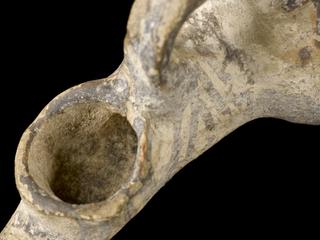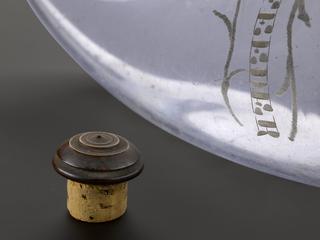




Explanted Ventak™ AICD, automatic implantable cardioverter defibrillator, model 1520, serial no. 612210, one of the first commercial models available, by Cardiac Pacemakers Inc™, St. Paul's, Minnesota, USA, from St George's Hospital, Tooting, 1984-1992
An implantable defibrillator is a battery powered device that detects and stops irregular heartbeats. When one is identified, it delivers an electric shock to restore the regular heart beat. ICDs were the idea of Mieczyslaw Miroswski (1924-1990), a Polish born cardiologist who was inspired by the sudden death of a colleague after a diagnosis of an irregular heartbeat. The first one was implanted in 1980 after years of research.
Getting used to living with an ICD takes time, especially if the device gives a shock that the heart does not need. Advice is available on different ways of learning to live with a device. Due to the large size of the device, a person required a long surgery, under a general anaesthetic. These devices are now much smaller and are often combined with a pacemaker.
Cardiac Pacemakers Inc, also known as CPI was started by former employees of Medtronic, a leading rival company. CPI were founded in 1972 an aimed to produce a longer life lithium battery to prolong the life of pacemakers and implantable defibrillators. It meant instead of being operational for just a year, battery life was up to 11 years.
Details
- Category:
- Therapeutics
- Object Number:
- 1993-1488
- Materials:
- metal (unknown), plastic (unidentified), acrylic and electronic components
- Measurements:
-
overall: 106 mm x 77 mm x 22 mm, , .245kg
- type:
- pacemaker
- credit:
- St George's Hospital




